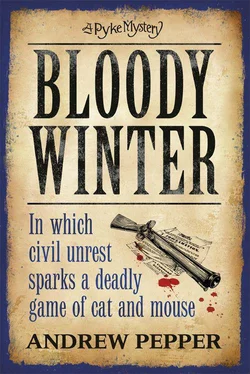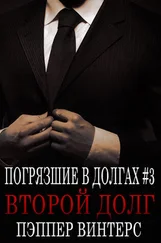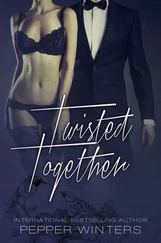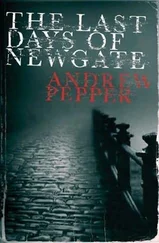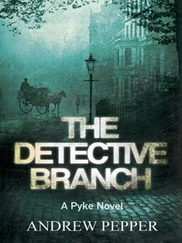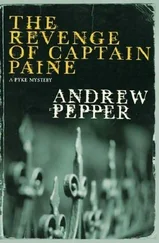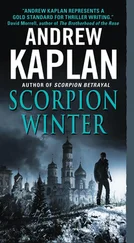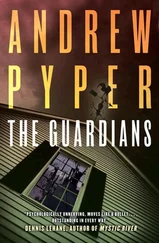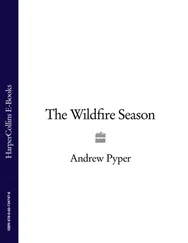Andrew Pepper - Bloody Winter
Здесь есть возможность читать онлайн «Andrew Pepper - Bloody Winter» весь текст электронной книги совершенно бесплатно (целиком полную версию без сокращений). В некоторых случаях можно слушать аудио, скачать через торрент в формате fb2 и присутствует краткое содержание. Жанр: Исторический детектив, на английском языке. Описание произведения, (предисловие) а так же отзывы посетителей доступны на портале библиотеки ЛибКат.
- Название:Bloody Winter
- Автор:
- Жанр:
- Год:неизвестен
- ISBN:нет данных
- Рейтинг книги:4 / 5. Голосов: 1
-
Избранное:Добавить в избранное
- Отзывы:
-
Ваша оценка:
- 80
- 1
- 2
- 3
- 4
- 5
Bloody Winter: краткое содержание, описание и аннотация
Предлагаем к чтению аннотацию, описание, краткое содержание или предисловие (зависит от того, что написал сам автор книги «Bloody Winter»). Если вы не нашли необходимую информацию о книге — напишите в комментариях, мы постараемся отыскать её.
Bloody Winter — читать онлайн бесплатно полную книгу (весь текст) целиком
Ниже представлен текст книги, разбитый по страницам. Система сохранения места последней прочитанной страницы, позволяет с удобством читать онлайн бесплатно книгу «Bloody Winter», без необходимости каждый раз заново искать на чём Вы остановились. Поставьте закладку, и сможете в любой момент перейти на страницу, на которой закончили чтение.
Интервал:
Закладка:
The sky in the west was flushed with pale streaks of light and the air felt cool and damp on his skin. Knox kept up a gentle pace, keen not to drive the horse too hard, since Maxwell wouldn’t have thought to feed or water it. Just before departing, he had talked to the labourer who’d first discovered the body. The man had told him nothing new and had strenuously denied taking anything from the dead man’s pockets. With nothing but the wind for company, Knox’s thoughts turned to the cured meat. He hadn’t eaten in twelve hours and his stomach was swollen with hunger. Taking it from his pocket, he brought it up to his nose and sniffed. Knox hadn’t seen, let alone eaten, meat for six months, and the urge to gnaw at it was almost too much to bear. Just one mouthful, he told himself. But if he ate a mouthful, he would end up gobbling the whole thing, and then how could he face his wife? Instead he returned the meat to his pocket, tried to distract himself by thinking about the body behind him.
About halfway along the old road a pauper scampered out in front of him, waving his arms. Knox thought it was some kind of ruse and that the man was part of a gang of robbers. He tugged the reins and went to retrieve his pistol. Quickly, though, he could see that the man was in distress; he was talking rapidly in broken Irish. Knox told him to slow down and explain what had happened. The man yanked Knox’s arm and led him through a gate to his cabin, where a lantern was hanging on a hook by the door. In halted speech he said that he’d left for a week in order to find road-building work in Thurles. Pushing open the door, Knox could smell the rotting corpses. There were three of them, limbs tangled up in the middle of the room, their carcasses gnawed almost clean by rats. Knox stared at them, not knowing what to say. Next to him, the husband slumped to his knees and started weeping. Knox sniffed the air and looked for a shovel. If the women and two children had died from a fever it was important to bury them as quickly as possible, to halt the spread of disease.
He told the man that the cemeteries were full and the undertakers were turning people away. The man looked at him, hollow-eyed. Knox doubted whether he’d be able to pay what they were demanding.
Without thinking, he thrust the cured meat into the man’s outstretched hand. Trade it for a coffin, he said, or just eat it.
The man looked down at the meat but said nothing.
Knox deposited the vagrant’s body in the cellar at the barracks and walked the mile and a half back to his cottage on the outskirts of town. Martha was waiting up for him; she had been waiting for hours. His first thought was for the infant, James, but she reassured him that everything was fine.
‘I thought something terrible had happened to you,’ she said, embracing him.
At twenty-three, Martha was five years younger than Knox and much better looking. She had thick, black straight hair, pale, freckled skin and delicate cheekbones. He had met her at a town fair three summers ago and they had married the following spring. Their marriage had been condemned by both families but it had been harder for Martha, especially as the ceremony had taken place in an Anglican church. Until the birth of their son, Martha had worked in the Union workhouse. In recent months, however, with the assistance of a Quaker family from Cork, she had given up this position to help run a soup kitchen which fed those who had been turned away from the workhouse.
‘Do you know how much the Cornwallis estate has contributed to the poor relief fund?’ she’d asked him the previous evening. ‘A hundred pounds. That’s all. Over the whole of last year.’
When he hadn’t responded, she’d added, ‘It hasn’t stopped him claiming for five and a half thousand against the public works scheme. And why? So he can pay his own tenants out of the general rate to square his fields and drain his land. Land, I don’t need to tell you, which was taken from those who needed it most.’
Later, he told Martha what he’d seen that day and what had happened to him in Dundrum. Afterwards they lay in silence, listening to the tree branches tapping against the windowpane.
‘People are dying and there’s no corn in the depot, not here, not in Clonmel and not even, I’ve heard, in Cork.’
Knox thought about the provisions the constabulary gave its men but decided not to say anything. Martha, he suspected, didn’t want or expect him to comment.
‘On the way to the house this morning,’ he said eventually, ‘I passed the time imagining what I’d say to Moore, how I would stand up to him and make him see the error of his ways.’ In private, this was what they both called Cornwallis, an obvious marker of disrepect. ‘But when I had the chance, I did nothing.’
Turning around, Martha kissed him gently on the cheek. ‘You have your mother and your family to think about.’
Knox listened to the sound of the infant sleeping. This was what his mother had meant. The family’s well-being depended on Moore’s patronage and the aristocrat had wanted to remind him of this. ‘Moore ordered me to bury the whole matter. I said I would.’
Martha waited a moment before saying, ‘And will you?’
‘What choice do I have?’
Martha ran her fingers through his still-damp hair. He could see one side of her face illuminated by moonlight shining in through the half-open curtains. ‘You’re a good man, Michael Knox. When the time comes, I know you’ll do what is right. That’s why I married you. Well, it’s one of the reasons at least.’ She tapped him playfully on the arm.
Knox let out a sigh. It was true. He did always try to do what was right, but this time he didn’t share his wife’s optimism.
THREE
MONDAY, 16 NOVEMBER 1846
London, England
Pyke had begun to feel his age.
It was the little things, he noticed. Such as the pain when he emptied his bladder in the mornings and the fact that when he first staggered out of his bed, his joints were so stiff he couldn’t walk without a limp. This morning he felt fuzzy-headed and disoriented. He had taken to drinking wine on his own, to ward off the loneliness, now that Felix, his only son, had left home. Dry-mouthed, he rubbed the crust from his eyes and yawned. He had opened a second bottle, he remembered, as he listened to the empty house creaking in the autumn wind. He would get up in another five minutes.
It had been harder to get going, Pyke had found, since Felix’s departure in the summer. Perhaps it was simply that he no longer had an example to set. But Pyke hadn’t been sleeping well for other reasons. A month earlier one of his sergeants, Frederick Shaw, had been killed during a botched raid on a warehouse, but not by of the one of the robbers they’d been hoping to apprehend. It was Pyke who had shot him by mistake. He had given his men orders not to enter the warehouse while he reconnoitred it but shots had been fired and chaos had broken out. Later, having listened to the evidence, the jury at the inquiry had declared the death to be an accident, but Pyke hadn’t been able to absolve himself of blame. He had been distracted; his head had been thick from the previous night’s wine; someone ahead of him had moved and he had ordered them to stop. He’d reacted too quickly or not quickly enough and now a man, one of his very best men, was dead.
The funeral had been terrible. Pyke had decided to attend it, at the bidding of the other detectives, but he hadn’t known what to say to Shaw’s wife and his young son. Throughout the service, he had listened to their sobs. Later he had visited the widow at home and had spent an hour with her, offering his sympathies and telling her what a fine man her husband had been. She had greeted him politely and seemingly bore him no ill will, but once or twice the mask had slipped and he’d seen what she really thought about him, the fear and revulsion. The boy had bawled throughout his visit. He would now grow up without a father and Pyke knew from his own experience the disadvantages this would bring. Pyke had assured Shaw’s widow that she would receive a generous pension but he knew this wouldn’t be enough to bring up the child. He’d left her an envelope with a hundred pounds stuffed into it. Blood money, he’d thought as he said goodbye.
Читать дальшеИнтервал:
Закладка:
Похожие книги на «Bloody Winter»
Представляем Вашему вниманию похожие книги на «Bloody Winter» списком для выбора. Мы отобрали схожую по названию и смыслу литературу в надежде предоставить читателям больше вариантов отыскать новые, интересные, ещё непрочитанные произведения.
Обсуждение, отзывы о книге «Bloody Winter» и просто собственные мнения читателей. Оставьте ваши комментарии, напишите, что Вы думаете о произведении, его смысле или главных героях. Укажите что конкретно понравилось, а что нет, и почему Вы так считаете.
